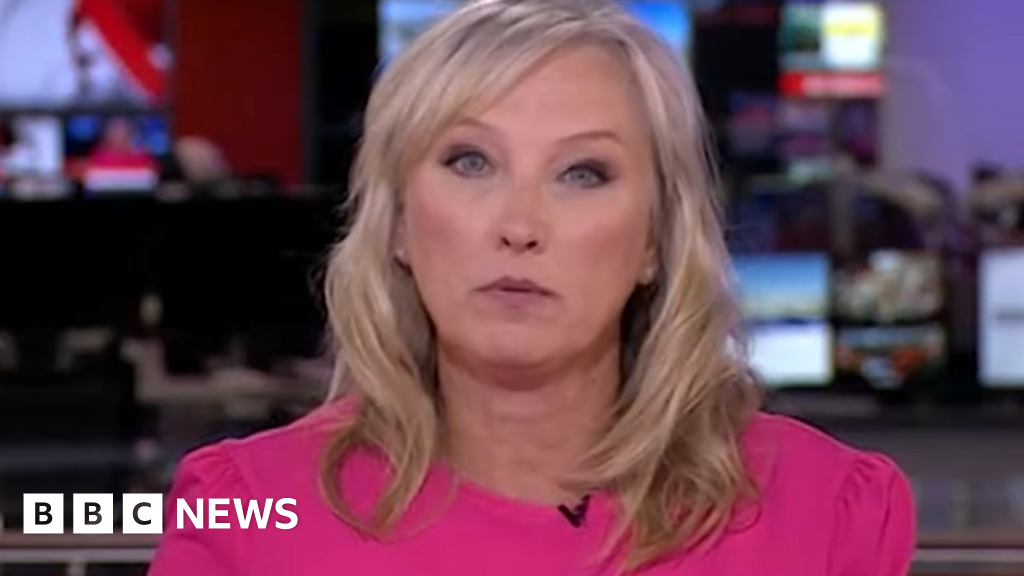Martine Croxall broke rules over 'pregnant people' facial expression, says

```html BBC Upholds Impartiality Complaints Against Presenter Martine Croxall Over "Pregnant People" Script
The BBC has upheld 20 impartiality complaints against presenter Martine Croxall after she altered a script referring to "pregnant people" during a live broadcast on the BBC News Channel earlier this year. The Executive Complaints Unit (ECU) ruled that Croxall's script alteration to "women" and her accompanying facial expression gave the "strong impression of expressing a personal view on a controversial matter," breaching the BBC's impartiality guidelines.
The incident occurred while Croxall was introducing an interview concerning research from the London School of Hygiene and Tropical Medicine (LSHTM) on groups most at risk during UK heatwaves. The original script quoted a release using the term "pregnant people." Croxall's revised wording and non-verbal cues sparked a wave of complaints, prompting the BBC investigation.
The Incident and the Complaints
During the broadcast, Croxall stated: "Malcolm Mistry, who was involved in the research, says that the aged, pregnant people … women … and those with pre-existing health conditions need to take precautions." The ECU’s assessment focused on both the word choice and Croxall's facial expression, which complainants interpreted as showing "disgust, ridicule, contempt or exasperation."
The ECU report noted the social media reaction following the broadcast, stating that "congratulatory messages Ms Croxall later received on social media, together with the critical views expressed in the complaints to the BBC and elsewhere, tended to confirm that the impression of her having expressed a personal view was widely shared across the spectrum of opinion on the issue." Author J.K. Rowling publicly praised Croxall at the time.
BBC's Ruling and Rationale
The BBC's Executive Complaints Unit acknowledged the explanation from BBC News management that Croxall may have been reacting to awkward scripting, including the phrases "the aged" and "pregnant people," the latter of which differed from Dr. Mistry's subsequent reference to "pregnant women." However, the ECU concluded that, regardless of intent, Croxall's actions "giving the strong impression of expressing a personal view on a controversial matter, even if inadvertently, falls short of the BBC's expectations of its presenters and journalists in relation to impartiality."
The finding has been reported to BBC News management and discussed with Croxall and the editorial team.
Context: Impartiality and the BBC
The BBC's commitment to impartiality is enshrined in its Royal Charter and Editorial Guidelines. These guidelines mandate that the BBC must remain neutral on matters of public controversy, particularly those related to politics, social issues, and identity. Presenters and journalists are expected to avoid expressing personal opinions that could undermine the BBC's perceived neutrality. This incident underscores the increasing scrutiny faced by media organizations as they navigate complex and sensitive social issues.
Expert Perspective: Navigating Evolving Language
Dr. Sarah Jones, a media ethics professor at the University of Cardiff, commented on the challenges facing broadcasters: "The BBC, like other news organizations, is grappling with evolving language and terminology related to gender and identity. While striving for inclusivity, they must also adhere to strict impartiality standards. This case highlights the difficulty of balancing these competing demands. The use of 'pregnant people' is intended to be inclusive of transgender and non-binary individuals who can become pregnant. However, its use can be perceived as controversial by some, creating a minefield for presenters."
Historical Context: Previous Impartiality Breaches
This is not the first time Croxall has faced scrutiny regarding impartiality. In 2022, the BBC ruled that comments she made during a newspaper review, shortly after Boris Johnson's withdrawal from the Tory leadership race, breached impartiality rules. The BBC stated that her "remarks and reactions... caused a significant risk the audience could believe opinions were being expressed on the Conservative leadership contest." These incidents point to ongoing challenges in maintaining impartiality across the BBC's output.
Correction and Clarification
The BBC has issued a correction to previous reporting on this matter. An earlier version of this article incorrectly stated that the ECU found Croxall's facial expression expressed a "controversial view about trans people." The corrected version clarifies that the ECU found her expression gave the "strong impression of expressing a personal view on a controversial matter." The article also mistakenly quoted the judgement as referring to "trans ideology" and has been amended to correctly refer to "trans identity."
Transgender people
```
Originally sourced from: BBC Entertainment
